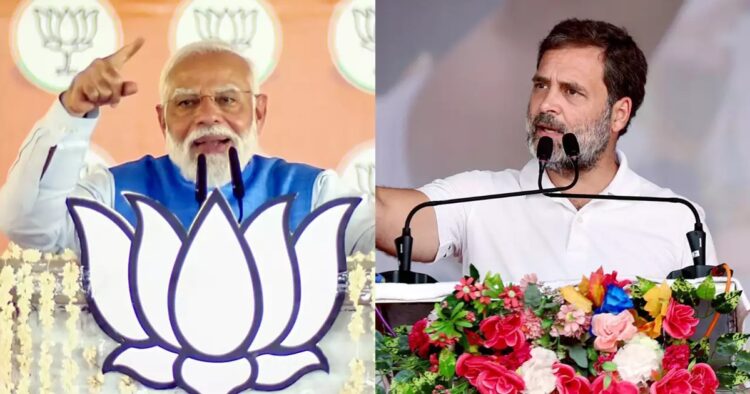Recently, Prime Minister Narendra Modi took a critical stance against Congress leader Rahul Gandhi’s promise to eradicate poverty in one stroke. Gandhi’s statement, made during a rally in Rajasthan, sparked controversy, prompting clarification from the Wayanad MP.
PM Modi, however criticize Gandhi, referring to him as a “shahi jaadugar” (royal magician) for his audacious claim of eliminating poverty with a single stroke. Modi’s remarks underscored skepticism regarding the feasibility of Gandhi’s promise, portraying it as an unrealistic and fantastical notion.
The Prime Minister further highlighted Gandhi’s statement as surprising and seemingly disconnected from ground realities. Referring to him as “Congress ke shehzade” (prince of Congress), Modi insinuated that Gandhi’s promise lacked practicality and was merely aimed at garnering political attention.
Critics have pointed out the disparity between Gandhi’s promise and the practical implementation of such a scheme. The feasibility of providing Rs 1 lakh annually to individuals below the poverty line under the Mahalakshmi scheme, as outlined in the Congress manifesto, has raised doubts among experts and political analysts.
PM Modi’s response resonated with supporters who viewed his skepticism as grounded in pragmatic considerations. Modi’s emphasis on gradual progress and sustained efforts aligned with his government’s approach to poverty alleviation. He expressed, focusing on comprehensive policies and economic reforms to uplift the disadvantaged sections of society.
As the first phase of the Lok Sabha elections approaches, the exchange between PM Modi and Rahul Gandhi sheds light on contrasting visions for addressing poverty in Bharat. While Gandhi’s political promises capture attention, Modi’s cautious approach not only exposed Rahul Gandhi’s political move but also underscores the importance of realistic and sustainable strategies in combating poverty.

















Comments